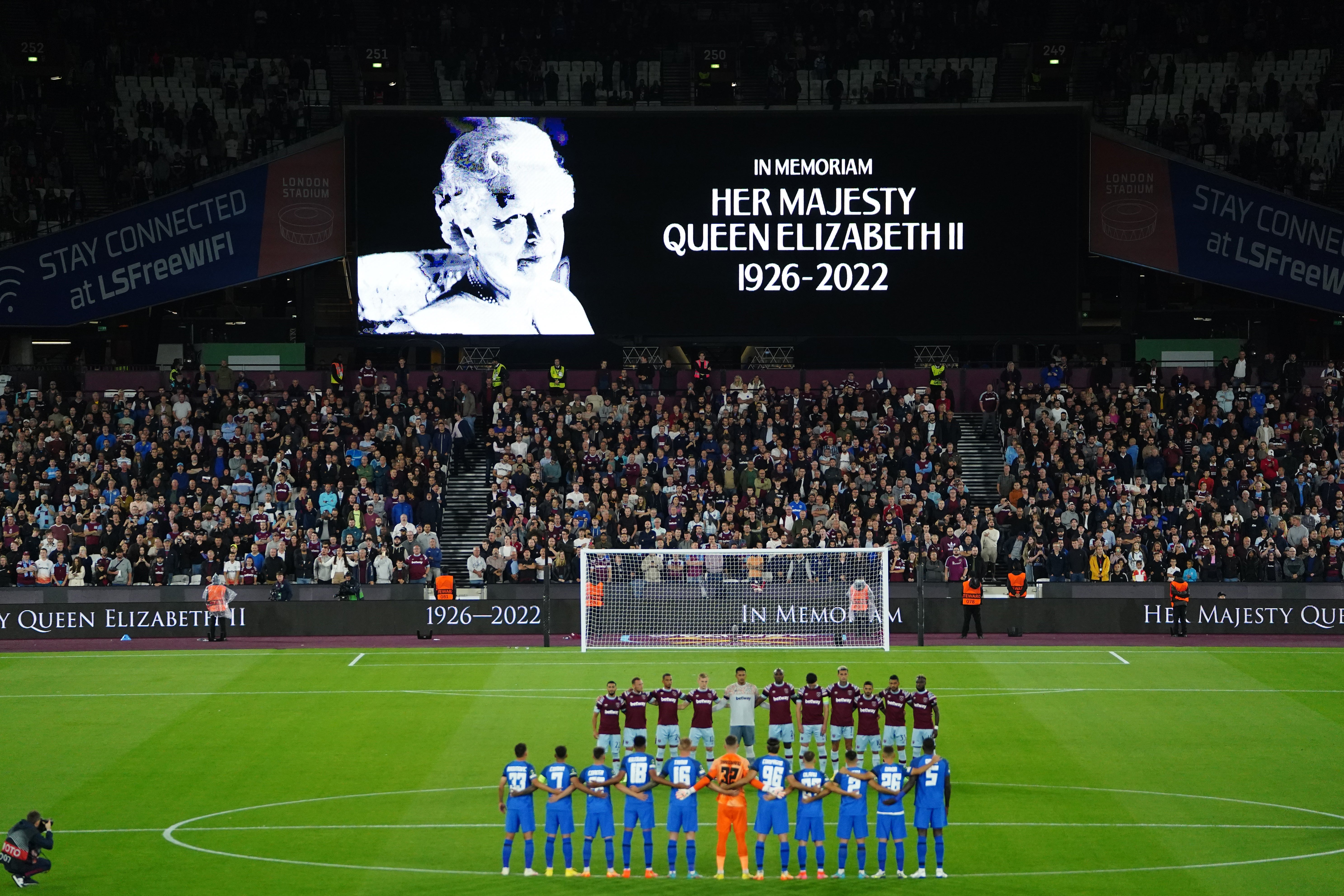Football missed the target by cancelling weekend fixtures in tribute to the Queen
The national game, as with many sports, has plenty of shared history with Her Majesty, writes Ben Burrows


As sports up and down the country scrambled to decide how to proceed in the wake of the Queen’s death on Thursday, many, understandably, looked to football for the example to follow.
The national game, as with many sports, has plenty of shared history with Her Majesty – she was a patron of the Football Association alongside Prince William and famously handed the World Cup to England captain Bobby Moore back in 1966.
It is with regret, then, that football chose to honour her passing in the wrong way.
Following a short meeting on Friday morning, all Premier League, Football League and – most inexplicably of all – grassroots matches were cancelled as a mark of respect. Other sports, in contrast, chose to continue with cricket, rugby union, rugby league and others deciding to play on.
Sport, for all its ills, does solemn remembrance very well. The scenes at The Oval on Saturday morning, with a capacity sporting crowd singing “God Save The King” for the first time in 70 years, were hugely moving and proof of that. Would similar scenes at the Etihad, Emirates or Elland Road not have been equally emotional showings of national mourning?
Such cancellations come with a tangible cost too. With the call made just 24 hours before many games were supposed to kick off, an entire economy of freelance workers, casuals and employees on zero-hour contracts were impacted, a number that tallies thousands across the game. Clubs themselves will take a hit in cancellation fees, which may not be a problem for the Premier League, but is a big one outside it.
It is not just a money issue either with food in huge quantities going to waste, and transportation and storage difficulties meaning not all of it can go to food banks.
You can’t please everyone, of course. Indeed, many within football will have agreed with the fixture postponements. It feels significant though that in 1952, when King George VI died, and in 1936, when King George V passed, football played on.
“There was no rulebook,” a source told The Independent of the lack of precedent the game had to work with. The Department for Digital, Culture, Media and Sport did little to assist in that regard either, offering no official mandate for sports to follow, instead leaving it up to each to decide for themselves.
Whatever call football made was going to be criticised, that is the nature of things with decisions like this.
With so many watching and waiting there was only one decision football was ever going to make. The problem is it really does feel like the wrong one.
Yours,
Ben Burrows
Sports editor
Join our commenting forum
Join thought-provoking conversations, follow other Independent readers and see their replies
Comments
Bookmark popover
Removed from bookmarks